Rosemary Tincture Recipe

Add some rosemary aroma to your drinks or enjoy rosemary's medicinal benefits to enhance your hair or memory. Packed in the small dropper bottle, rosemary tincture is a herbal powerhouse that one wants to explore.
Rosemary is a herb that is typically found in most gardens near Lac Leman. I remember when I first moved to this area almost 10 years ago that I could smell it almost everywhere. Later I was able to plant rosemary in my garden. I have a bunch of rosemary every time I need it. I use it when making rosemary tea or rosemary roasted potatoes.
Only lately I made this rosemary tincture recipe and new ways of using rosemary just opened up. But let me start from the beginning.
“As an Amazon Associate, I earn from qualifying purchases.” Read full disclosure here.
Hardy Rosemary
This fragrant herb belongs to the mint family (Lamiaceae) and its Latin name Rosmarinus means “dew of the sea.” Its needle-like evergreen leaves are used dried or fresh to season food in hair rinse or rosemary oil to enhance your beard.
According to a legend, when Queen Elizabeth of Hungary in 1235 was paralyzed, none of the court physicians were able to help her. A local healer cured her by rubbing Rosemary liniment on her limbs. To make his medicine he soaked a pound of Rosemary in a gallon of wine. This recipe became known later as Queen of Hungary's Water that was very popular for centuries to treat problems with the skin and joints.
Rosemary is a valuable source of vitamins, minerals and volatile oils that contribute to its medicinal properties. The easiest way to implement rosemary benefits in your daily routine is to drink it as tea or make a rosemary tincture.
What is rosemary tincture
It is a concentrated extract of rosemary leaves in alcohol that is used as a solvent. Rosemary is soaked in alcohol for several weeks which enables it to extract its active substances into a solvent. A few drops of tincture contain a potent concentrate with long shelf life.
Rosemary tincture benefits
Tincture to Improve memory
A study published in the journal Fitoterapia indicates that rosemary leaf extract might be able to help with dementia and improve memory. Another study published in the Journal of Medicinal Food indicated that rosemary might improve cognition among older people.
Recent studies show that rosemary inhibits the breakdown of acetylcholine, which is a compound that plays a role in the brain responsible for memory and reasoning. Rosemary may also promote memory function by increasing blood flow to the brain.
Antioxidant
Rosemary works as an antioxidant by protecting healthy cells and preventing their damage. Rosemary contains antioxidants carnosic acid and rosmarinic acid that are highly effective in combating oxidative stress.
You can achieve a similar result with lemon balm tincture.
For hair growth
Rosemary tincture increases blood flow and stimulates circulation to promote hair growth. The main ingredient responsible for hair growth is ursolic acid, which provides oxygen and nutrients to the hair follicles and makes the hair grow faster and to regrow again.
In addition, rosemary is known for its anti-inflammatory and antibacterial properties, which help nourish and soothe hair follicles. It also prevents dandruff.
How to make rosemary tincture
First step
Whether you grow your own rosemary or you decide to buy dry rosemary you will need to gather 1 cup of fresh rosemary or ½ cup of dried rosemary for this herbal preparation.
Early morning is the best time to harvest rosemary because it helps preserve its volatile oils. Also collect rosemary before it begins to bloom as the volatile oils and medicinal compounds in leaves are the most concentrated.
Most of the time when making tinctures I prefer to use dried herbs to avoid any spoilage from moisture. However, rosemary doesn’t have that much moisture and its volatile oils are at their strongest when used fresh.
Feel free to use dried material as it will also make very potent homemade tincture.
Second step
Chop fresh leaves of rosemary to increase the surface area for the maceration and place it into a sterilized jar filling it to ¾.
Third step
Pour in 40 % = 80 proof vodka or any ethyl alcohol or grain spirit to the very top of the jar to cover the rosemary.
You can also make non-alcoholic homemade tincture and use glycerin or apple cider vinegar instead of alcohol.
Fourth step
I find that glass jar with a plastic lid are best for this, but if you don't have one, just use parchment paper in between to avoid any corrosion.
Cover the jar and place it in a cool, easily accessible place. You will need to shake it from time to time to help break the cell walls of the herb. Also, make sure that the leaves are completely covered with alcohol, as the alcohol can evaporate. The entire extraction process can last 6-8 weeks.
Fifth step
Strain the tincture through a fine mesh sieve or cheesecloth into a sterilized jar. Make sure that no herbs are left in the tincture because they may cause mould and spoilage.
Sixth step
Store the tincture in a dark bottle with a dropper in a cold place. It can last up to 5 years.
Seventh step
label your rosemary extract with the name and date you made it.
Rosemary tincture uses
Internally
The most beneficial way of using this homemade tincture is to take it internally. Take the drops directly under the tongue which allows the tincture to get directly to the bloodstream. If it is more convenient for you, you can also dilute it in water, tea, or juice
Rosemary tincture dosage
The recommended dosage is between 15 and 30 drops one to three times daily. The research suggests a dose of 60 drops daily has shown to have beneficial results.
For hair growth
Dilute this rosemary tincture recipe into your own hair products such as shampoo, conditioner or hair rinse to give your hair extra boost. Add 1 full dropper squeeze (½ tablespoon) per 8 ounces to hair product of your choice
In cooking
This rosemary tincture is best used in drink infusion, candy or sauce making. Add as many drops to your final recipe as you need for your desired strength!
Rosemary tincture cocktails
Rosemary extract is aromatic and just a few drops can give a herbal spin to traditional drinks or cocktails such as Killer queen or Gin fizz
How to make rosemary tincture without alcoholIf you want to make an alcohol free tincture you can replace alcohol with vegetable glycerine or apple cider vinegar.
How long does rosemary extract last?If stored properly in a dark and dry place away from direct sunlight like a kitchen cabinet it can last up to 5 years.
Where can I buy one?you can also buy ready made rosemary tincture if you prefer.
Enjoyed the project?
Ingredients
- 1 cup (128 g or 4.5 oz) fresh rosemary leaves or ½ cup (64 g or 2.75 oz) dried rosemary
- 1 cup (240 ml or 8 oz) 80 proof alcohol
Tools
- Dropper bottle
- glass jar with plastic lid
Instructions
- gather 1 cup of fresh rosemary or ½ cup of dried rosemary
- Chop fresh leaves of rosemary to increase the surface area for the maceration and place it into a sterilized jar.
- Pour in 40 % = 80 proof vodka to the very top of the jar to cover the rosemary.
- Cover the jar and place it in a cool, easily accessible place.
- Shake it from time to time to help break the cell walls of the herb. Also, make sure that the leaves are completely covered with alcohol, as the alcohol can evaporate.
- after 4-6 weeks strain the tincture through a fine-mesh sieve or cheesecloth into a sterilized jar.
- Label it and store the tincture in a dark bottle with a dropper in a cold place. It can last up to 5 years.
Notes
- You can make an alcohol-free tincture with vegetable glycerine or apple cider vinegar. It is great for children.
The author may collect a small share of sales from the links on this page.

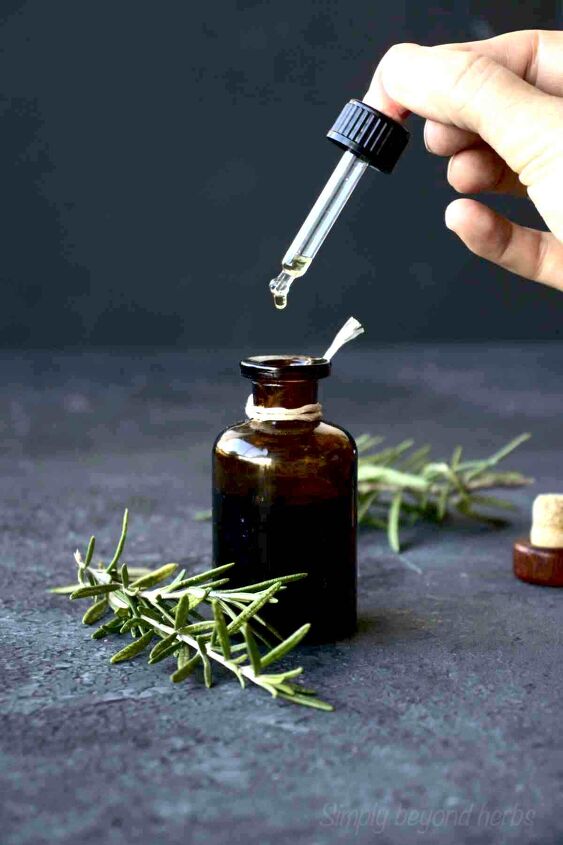








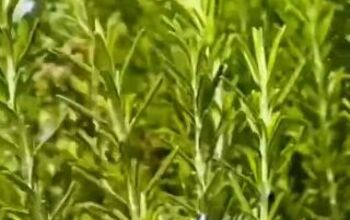
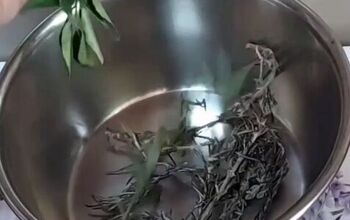
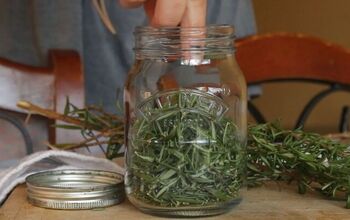
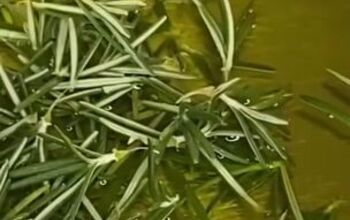
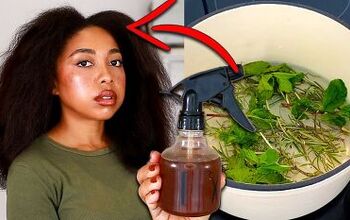
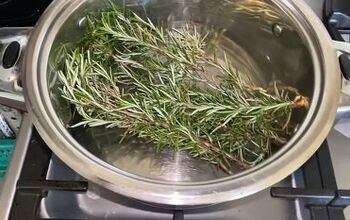


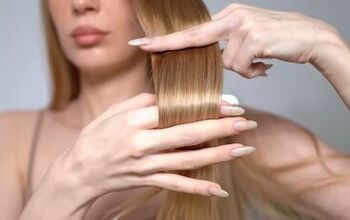

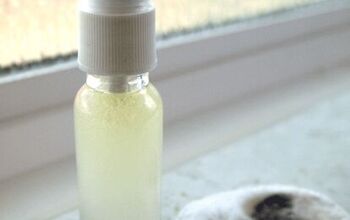

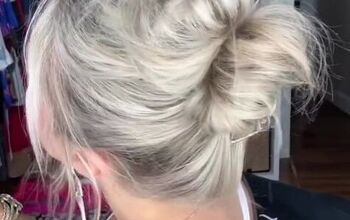
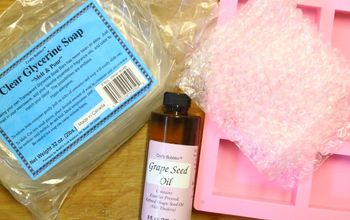
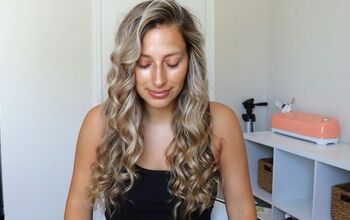
Comments
Join the conversation